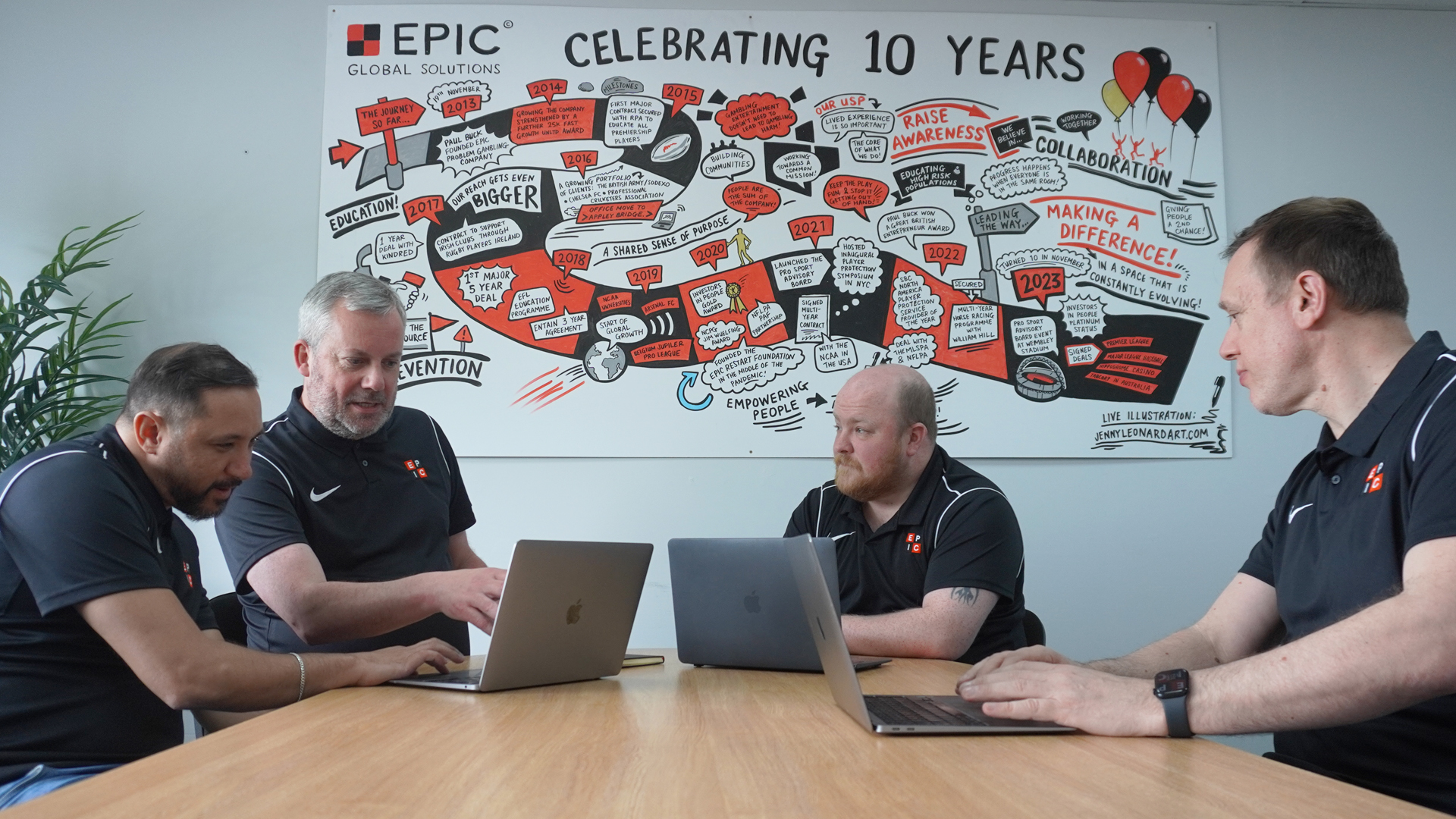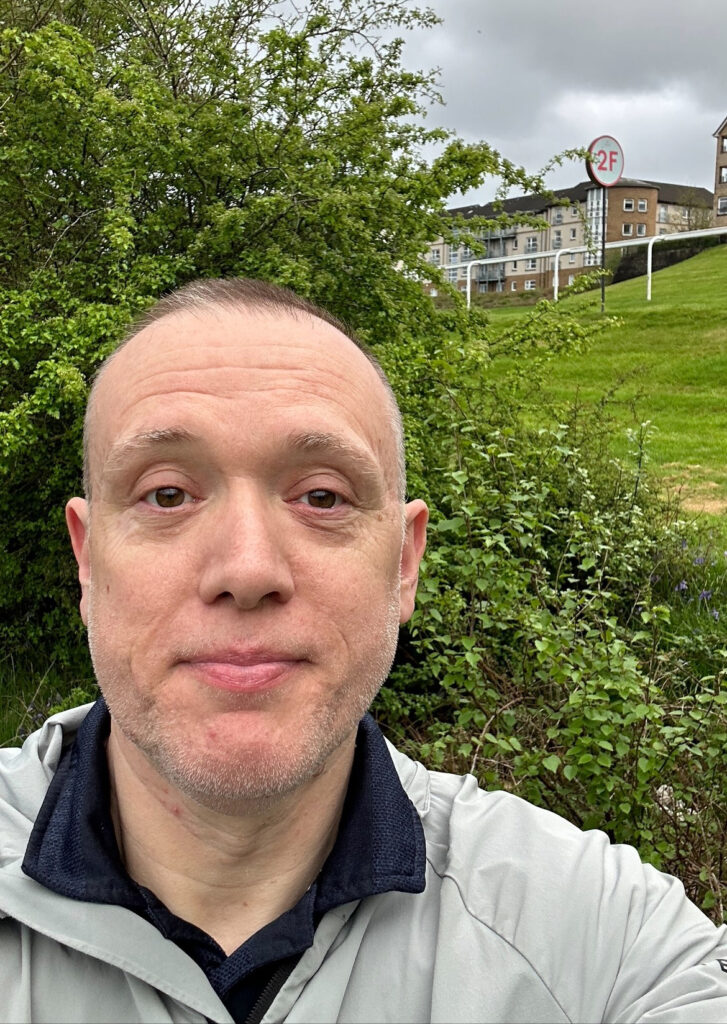Mental Health Awareness Week: How we now ‘move’ for better mental health

With this year’s Mental Health Awareness Week (May 13th-19th) in the UK focusing on the theme of ‘Movement: moving for our mental health’, our Safer Gambling team has been drawing on their lived experience to reflect on how they replaced the negative time spent on problem gambling with a more positive and active approach to their life.
Mental health has been a priority topic for us so far this month, with the US also currently observing Mental Health Awareness Month, and with our stance being that problem gambling should be recognised as a mental health issue among more widely-discussed challenges such as anxiety or depression, it is an issue that is close to our hearts.
As such, the members of our team who have experienced gambling-related harm are well placed to share first-hand insight into the ways that those currently experiencing the same issue can look to make sustainable changes for the better in their life.
Four members of our Safer Gambling team (pictured above) have all taken time to answer questions on the way they have been able to lead a more active lifestyle to fill the gaps where previously they would have been preoccupied with gambling…
Is there any physical activity you used to neglect because of the time you spent gambling that you’ve now been able to put right?
Dave Sproson (head of safer gambling): “Before my time was consumed with gambling, I frequently used to look forward to walking, something that me and my wife did quite often in our spare time, but as time went on I would always find excuses not to go on a walk with her because it ate into the time that I would want to spend gambling. I even used to encourage her to still go for a walk and ‘enjoy herself’ because then I could stay at home and do whatever I wanted without having to hide it.”
Alan Smart (safer gambling manager): “Walking and cycling mainly; the only walking I ever did was between betting shops and a bank ATM. These days I try and do a minimum of 5,000 steps a day – not quite the standard 10k, but it helps me massively.”
Craig Cornforth (safer gambling manager): “The tragedy of addiction is that everything else became collateral damage to gambling. Not just in terms of exercise but also social aspects of life. Simple things like walking the dog which were a mainstay of normal life became a tiresome chore, ‘taking away’ my invaluable gambling time.
“It’s an important aspect of my recovery regardless of how small to remind myself of the importance of recharging the body as well as the mind.”
Marko Jenkins (safer gambling manager): “Personally it was soccer. Our meeting point before every game was outside our local sportsbook. It started off with everyone waiting on the mini bus for me whilst I was still hooked on the roulette machines to then just making the bus before it pulled off.
“I didn’t see it as a problem at first, but then I started to miss kick-off and getting a taxi to make the second half, to eventually not turning up at all.
“Nowadays I am over ten years free from gambling, and ironically I now play for the vets team and help coach the kids from time to time for the same club I neglected whilst I was addicted to gambling.”
What new physical activities – however big or small – have you taken on since you placed your last bet and how have they had a positive impact on your mental health?
Sproson: “The largest impact for me is walking my dogs. It was something that I never expected to ‘enjoy’, as I’d always seen it as a chore when I walked the family dog as a child, but on a nice day walking the dog through the fields or woods actually helps me to focus. Quite often when there’s a particularly stressful week or if I find that I’m struggling for an idea or solution, I find that taking the time to step outside and walk with the dogs for an hour or two actually helps me to realign and often allows me to come to a realisation.
“Outside of the work focus, I also feel noticeably better, less irritable and overall in a better mood after spending the time outside. It’s now also something that I can enjoy with my wife again and now with the kids too.”
Smart: “The image below is me playing golf which I’ve taken up in the last year. Look closer and behind me you’ll see the 2furlong pole at Hamilton Park Racecourse in Scotland – it blows my mind when I’m out there that I used to put my last penny in a betting shop betting on horses running past that pole.
“It’s incredible I’m now on the other side of that fence playing golf which keeps me fit and is incredible for my mental health.”

Cornforth: “Walking the dog on my lunch hour, no matter the weather is vital to me. Sharing the walks with the family along our wonderful coastline is even better. I’ve started playing golf (not very well) again which is food for the soul, if not for the wallet with the amount of balls I’m losing!
“It’s such a refreshing change to work somewhere that not only recognises the importance of this but encourages it.”
Jenkins: “Cold water therapy. I joined a local club called Dawnstalkers where everyone meets for a morning dip to watch the sunrise. It’s a great community and the benefits are endless; from speeding up muscle recovery to helping blood flow increase.
“I also started playing golf. I decided to start playing to get out and get active. Having an addictive personality, I jumped straight in got a membership and a new set of clubs and played regularly.
“Since playing, the dream was to play abroad and last year, eight of us went over to Portugal to play for a week. This is something I wouldn’t have been able to do if I was still gambling as I would never have invested the money.”
The answers provide food for thought for anyone who recognizes signs of gambling harm in their lives, but as much as these could be helpful lifestyle changes that others could make, we urge anyone in that situation to reach out for specialist help in the first instance, with details of the leading support organisations available via this link.
Mental Health Awareness Week is observed annually in the UK and has been promoted by the Mental Health Foundation since 2001 in order to ensure that millions of members of society engage in awareness of good mental health.